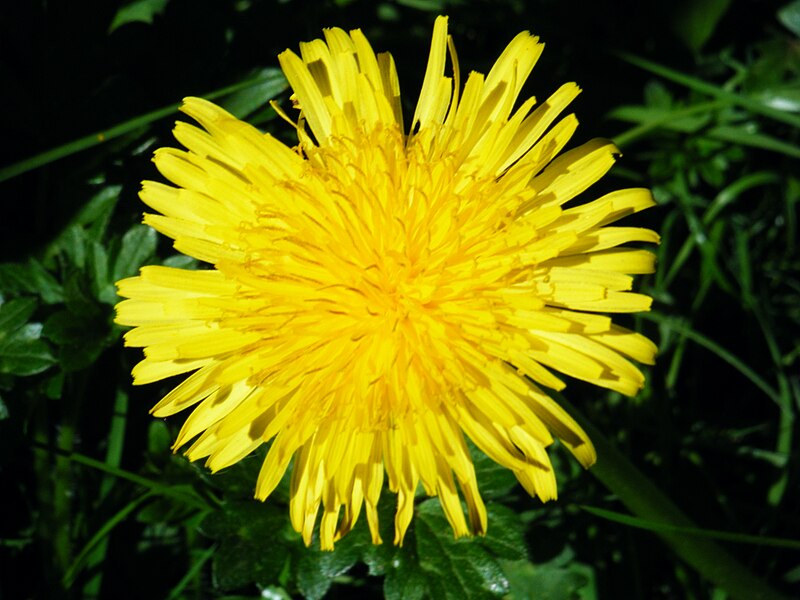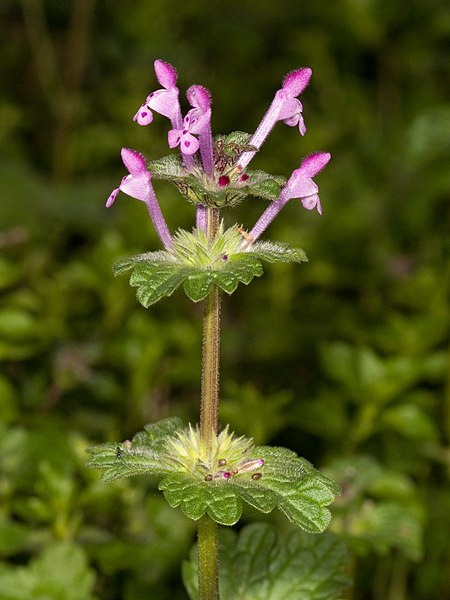Sort of.
Actually, it was more frustrating than anything else.
When it arrived, I had just wrapped up an article on the hygiene hypothesis--the idea that our lives are excessively clean, a lifestyle that is thought to have given rise to an increase in health problems, including asthma and allergies.
Are we overly clean? Probably. And the end of my article addresses that (I'll link to it once it's published). But what really grabbed me as I researched the story is the importance of biodiversity in keeping us healthy.
What does this have to do with that lawn care envelope? The so-called "threats" to the lawn are nothing more than biodiversity. I'll get to why biodiversity is so important in just a second, but first let's look at a couple of specific "threats":
 |
| source |
 |
| source |
Clover. Clover is a legume, a member of the bean family. Like all legumes, clover is capable of taking nitrogen from the atmosphere and "fixing" it, or putting it into a form that plants can use. Clover in your lawn is good because it fertilizes the grass--so you don't have to. This is good for several reasons. (1) It saves you money. (2) Almost all synthetic fertilizers are over-applied, which creates water pollution downstream as the excess runs off. (3) Synthetic fertilizers require fossil fuels, thus contribute to climate change.
 |
| source |
Most people respond to these dastardly weeds with a spritz of weed-killer. Or better yet, they cover their lawns with pre-emergent in the spring and fall, to prevent those unwanteds from ever growing a cotyledon.
Ever stopped to think about just what those chemicals are? If they're designed to kill plants, what do you think they're doing to you? No, you're not a plant, and you lack some of the cellular structures plants possess. But that doesn't mean these chemicals are harmless. Far from it.
But that's not what this post is about. Eliminating those weeds decreases biodiversity. Living in a house surrounded by a rigorously-maintained carpet of grass is like living in a biological desert. Why? Because different kinds of plants are covered with different kinds of microbes. Without a diversity of plants, we lack a diversity of microbes.
Living in a place devoid of microbes might sound good, but from a health standpoint, it's a problem.
A really big problem.
You see, microbes help us in many ways (probably more than we even suspect at the moment, since this is a fairly recent area of research). They provide us with nutrients, crowd out the germs that can make us sick, and prime our immune systems.
It's looking more and more like we need microbes, specifically the ones found outside in the soil and on plants and in biologically diverse areas. Exposure appears to train the immune system, teaching it what's in the environment--teaching it what poses a threat and what's not worth a response.
People who lack that exposure to a wide range of environmental microbes have immune systems that are overactive. Because those immune systems have never learned what's safe and what's a threat, they are primed to attack everything.
The result: asthma and allergies. And more recently, researchers have learned that other diseases, including multiple sclerosis, Crohn's disease, even some forms of depression, may have roots in an improperly-primed immune system, too.
So back to that lawn care letter. What "threat" lurks in my lawn? Certainly not the weeds, nor the microbes with which they associate. That so-called "treatment", on the other hand, just might qualify.
